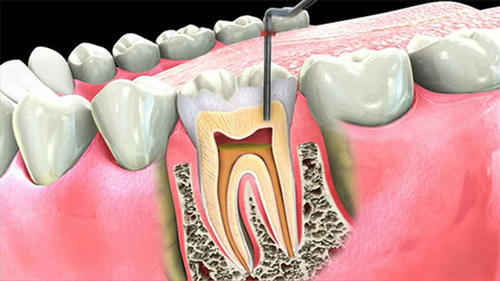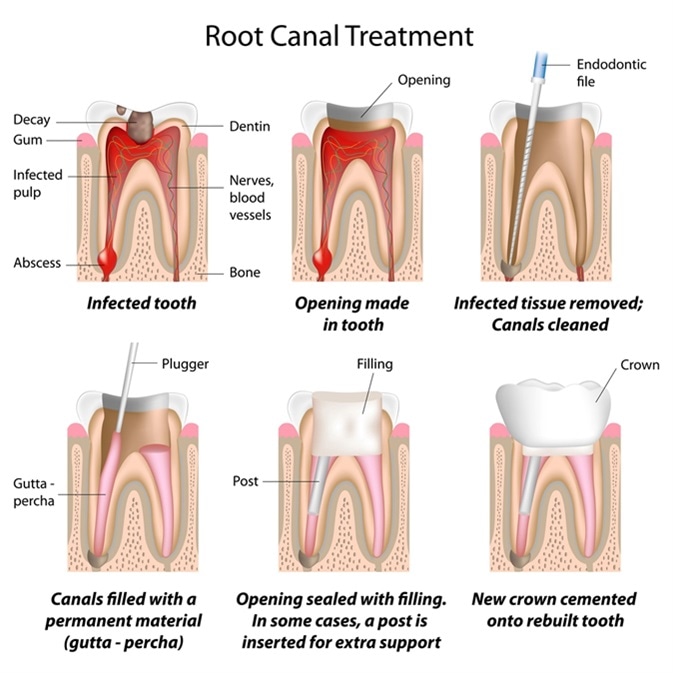DENSART DENTAL CARE Home Services Blog Doctor About Us Gallery Book my Appointment

Endodontic is the specialty that deals with root canal treatment and all associated things. When a cavity is unattended for a long time the bacteria burrow deep into the tooth to reach the center where the nerve chamber is.
Once infected this chamber and the canals that lead to it cannot heal on its own and hence require Root Canal Treatment.
This basically means that the nerve chamber and canals need to be cleaned and filled.
What is Root Canal Treatment?
A root canal is a procedural treatment done to repair and save the infected or severely damaged teeth.
During this procedure, the nerve is removed and the inside of the tooth is cleaned and sealed.
Without Root Canal Treatment, the tissue surrounding the tooth will become infected and may form abscesses.
